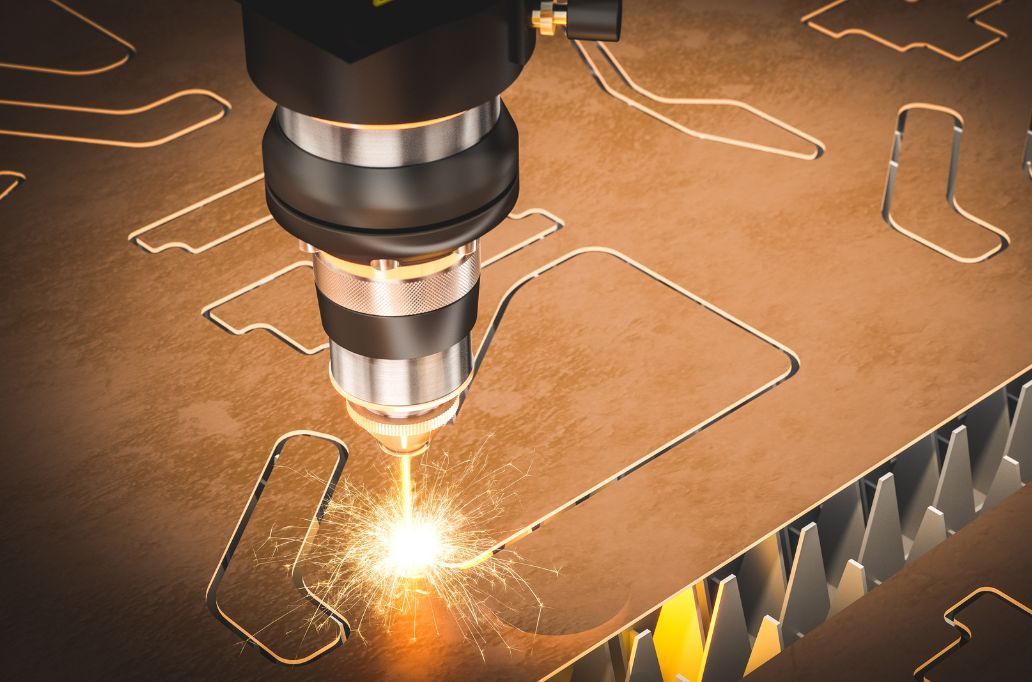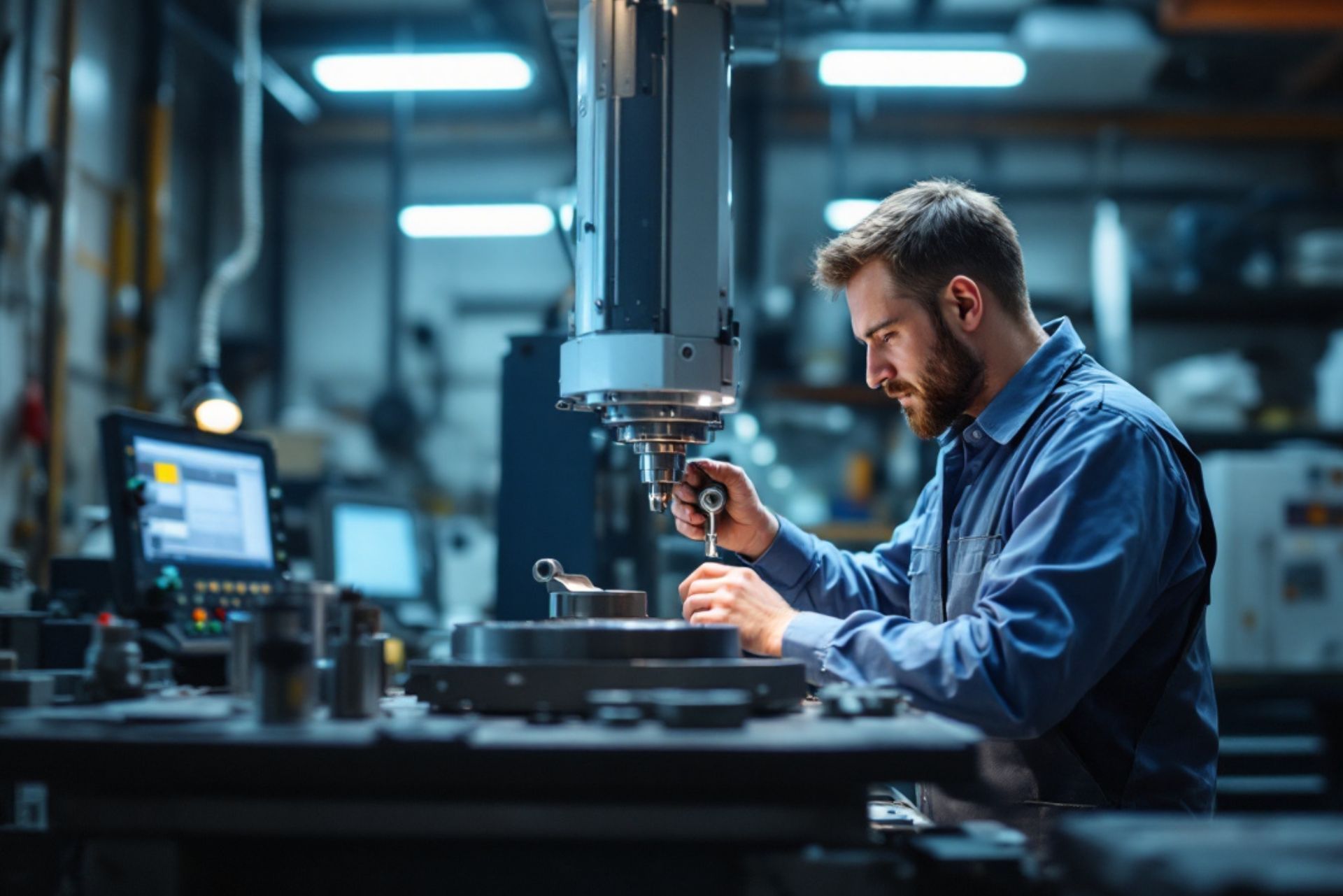
Index
Understanding the Basics of CNC Machine Shops Insurance Michigan's Specific Requirements for CNC Machine Shops Insurance
Choosing the Right Insurance Provider in Michigan
Cost of CNC Machine Shops Insurance in Michigan
Claiming CNC Machine Shops Insurance in Michigan
Frequently Asked Questions about CNC Machine Shops Insurance in Michigan
CNC (Computer Numerical Control) machine shops are an integral part of the manufacturing industry, particularly in Michigan, which is known for its significant contributions to both automotive and aerospace sectors. As these businesses operate complex machinery and manage various production processes, having adequate insurance coverage is essential. This guide will walk you through everything you need to understand about CNC machine shops insurance in Michigan.
Understanding the Basics of CNC Machine Shops Insurance
Insurance for CNC machine shops is designed to protect your business against a variety of risks, including property damage, liability claims, and employee injuries. This specialized insurance covers the unique challenges faced by machine shops, ensuring that they are financially shielded during unforeseen events. In an industry where precision and safety are paramount, having the right insurance can mean the difference between a thriving business and one that struggles to stay afloat after an incident.
There are several types of coverage available, including General Liability Insurance, Workers' Compensation Insurance, and Property Insurance. Understanding these policies is crucial for a machine shop owner looking to shield themselves from financial risks effectively. Additionally, many insurance providers offer tailored packages that cater specifically to the needs of CNC machine shops, allowing owners to customize their coverage based on the specific operations and risks associated with their business.
The Importance of Insurance for CNC Machine Shops
The importance of insurance in CNC machine shops cannot be overstated. First and foremost, it safeguards against financial loss that could arise from accidents, equipment failure, or natural disasters. Without proper insurance, a machine shop may struggle to recover from significant incidents, jeopardizing its long-term viability. For instance, a fire that damages machinery or a flood that compromises the facility can lead to substantial repair costs and business interruption, making it essential to have a robust insurance plan in place.
Furthermore, having adequate insurance can enhance the credibility of your business, making it easier to secure contracts and partnerships. Clients and suppliers often require proof of insurance before conducting business, which means that a comprehensive policy can open more doors for collaboration and growth. Moreover, being insured can also foster a culture of safety within the workplace, as employees recognize that their well-being is a priority for the business, potentially leading to lower accident rates and increased productivity.
Key Components of CNC Machine Shops Insurance
There are several key components that typically make up a CNC machine shop insurance policy:
- General Liability Coverage: Protects against claims resulting from injuries or damage caused by your business operations.
- Property Insurance: Covers the physical assets of your machine shop, including tools, equipment, and the building itself.
- Workers' Compensation: Important for covering medical expenses and lost wages for employees who may get injured on the job.
- Product Liability Insurance: Essential if your business manufactures parts that may lead to injuries or damage if they fail.
Each of these components plays a crucial role in providing a comprehensive safety net for your business, allowing you to focus on manufacturing with peace of mind. Additionally, many machine shop owners may also consider adding coverage for business interruption, which can help mitigate losses during periods when operations are halted due to unforeseen circumstances. This type of insurance can be particularly beneficial in an industry where downtime can lead to significant revenue loss and client dissatisfaction.

Michigan's Specific Requirements for CNC Machine Shops Insurance
Operating a CNC machine shop in Michigan comes with specific insurance requirements. Understanding these laws is crucial to ensuring compliance and avoiding potential penalties.
The state mandates certain types of insurance coverage for businesses, specifically when it comes to protecting workers and the public. This means that machine shop owners must be aware of both general and industry-specific insurance mandates to operate legally and effectively.
State Regulations and Guidelines
Michigan has specific regulations that govern the type of insurance coverage necessary for businesses. For CNC machine shops, these regulations often correlate with safety and liability standards mandated by state law.
Owners should be familiar with the Michigan Occupational Safety and Health Administration (MIOSHA) standards, which ensure that employers provide a safe working environment. Failure to comply with these regulations could result in fines and may affect your insurance claims.
In addition to MIOSHA standards, machine shop owners must also consider the implications of equipment breakdown coverage. CNC machines are often significant investments, and any downtime due to mechanical failure can lead to substantial financial losses. Therefore, obtaining coverage that specifically addresses equipment malfunction is not only prudent but can also be a requirement under certain contracts or client agreements.
Compliance with Michigan's Insurance Laws
To ensure compliance with Michigan's insurance laws, machine shop owners should regularly review their policies and consult with legal experts or insurance professionals. Any business operating in Michigan must ensure that it meets basic coverage requirements and that its policies align with state legislation.
Regular updates to your insurance coverage based on changing laws and regulations are also essential to maintaining compliance and protecting your business interests. Moreover, it is advisable to engage in continuous education regarding industry trends and emerging risks. By participating in workshops or seminars, shop owners can stay informed about best practices in risk management, which can ultimately lead to more favorable insurance terms and lower premiums.
Furthermore, machine shop owners should also consider the importance of liability insurance, particularly general liability and product liability coverage. These policies not only protect against claims of bodily injury or property damage but also safeguard the business against potential lawsuits that could arise from the use of their products or services. In an industry where precision is paramount, having the right liability coverage can provide peace of mind and financial security in the face of unforeseen incidents.
Choosing the Right Insurance Provider in Michigan
Selecting the right insurance provider is crucial for CNC machine shop owners. It is advisable to research potential providers thoroughly and ensure they understand the unique risks associated with machine shops.
A dedicated insurance broker who specializes in manufacturing or machinery can provide invaluable insights and guide you through the selection process, ensuring you choose a policy that meets your specific needs.
Factors to Consider When Selecting an Insurance Provider
When choosing an insurance provider, consider the following factors:
- Experience and Expertise: Providers with experience in manufacturing insurance understand the risks involved.
- Customer Service: A responsive customer service team can make handling claims and inquiries much easier.
- Coverage Flexibility: Ensure that the provider offers customizable policies that can adapt to your business needs.
- Reputation: Research customer reviews and industry ratings to judge the provider's reputation.
Evaluating Insurance Quotes and Packages
Once you have identified potential insurance providers, the next step is to evaluate quotes and compare packages. Look beyond the premium amounts to ensure that coverage limits and deductibles make sense for your operational needs.
Consider engaging with your insurance broker to assist in breaking down the details of each quote. They can help highlight any gaps in coverage, allowing you to make an informed decision that offers adequate protection for your CNC machine shop.
Additionally, it is essential to understand the specific types of coverage that are available for CNC machine shops. This may include property insurance to protect your machinery and equipment, liability insurance to cover any potential injuries or damages that occur on-site, and business interruption insurance to safeguard against loss of income during unforeseen events. By familiarizing yourself with these options, you can better assess which policies align with your operational risks and financial goals.
Furthermore, consider the financial stability of the insurance provider. A company with a strong financial rating is more likely to fulfill its claims obligations, which is critical in times of need. Tools such as AM Best ratings or Standard & Poor's assessments can provide insights into the insurer's financial health, ensuring that you choose a provider that will be there for you when it matters most.
Cost of CNC Machine Shops Insurance in Michigan
The cost of CNC machine shops insurance can vary significantly based on several factors, including the size of the shop, the type of machinery used, and the specific coverages included in the policy. Understanding these factors is essential for budgeting effectively.
While insurance is an unavoidable expense, it is also an investment in the long-term viability and security of your business. Ensuring that you allocate sufficient funds for coverage is crucial. Many shop owners may find it daunting to navigate the insurance landscape, but taking the time to research and understand the options available can lead to better coverage at a more favorable price.
Factors Influencing Insurance Costs
Several factors can influence the insurance costs for CNC machine shops, including:
- Business Size: Larger machine shops typically face higher premiums due to the greater exposure to risk.
- Type of Operations: The nature of machinery and techniques used in your shop can influence the cost.
- Claims History: A history of frequent claims may result in higher premiums.
- Location: Areas prone to natural disasters or higher crime rates may incur higher insurance costs.
Additionally, the specific industry standards and regulations in Michigan can also play a role in determining insurance costs. For instance, shops that work with hazardous materials or have specialized machinery may need additional coverage, which can further impact premiums. It’s essential for shop owners to stay informed about local regulations and industry trends that could affect their insurance needs.
Ways to Reduce Insurance Premiums
There are several strategies CNC machine shop owners can employ to reduce their insurance premiums:
- Implementing Safety Programs: Establishing effective safety protocols can reduce the likelihood of claims.
- Bundling Policies: Some providers offer discounts for bundling multiple insurance types.
- Regular Equipment Maintenance: Properly maintained equipment can lower the risk and associated premiums.
- Increasing Deductibles: Choosing a higher deductible can often lead to lower premiums.
Another effective strategy is to engage in risk assessment and management practices. By identifying potential hazards and addressing them proactively, shop owners can demonstrate to insurers that they are committed to maintaining a safe working environment. This not only helps in reducing premiums but also fosters a culture of safety among employees, ultimately contributing to a more efficient and productive workplace. Furthermore, seeking advice from insurance brokers who specialize in commercial coverage can provide valuable insights and help tailor policies to fit specific business needs, ensuring that you are adequately covered without overpaying.

Claiming CNC Machine Shops Insurance in Michigan
The process of claiming CNC machine shops insurance can be complex, but understanding the requirements and steps can ease the procedure significantly. Knowing what to expect during a claim can save valuable time and effort when you need it most.
Preparation is key. Keeping detailed records and documentation will help substantiate your claims and expedite the process. This includes not only incident reports but also maintenance records, safety inspections, and employee training logs, all of which can provide crucial context to your claim and demonstrate your commitment to safety and compliance.
Understanding the Claims Process
To file a claim, follow these general steps:
- Notify Your Insurer: Contact your insurance provider as soon as possible following an incident.
- Fill Out Claim Forms: Complete all necessary paperwork accurately and thoroughly.
- Document the Incident: Gather evidence such as photos and witness statements.
- Follow Up: Maintain regular contact with your insurer to check on the status of your claim.
Each of these steps is crucial in ensuring that your claim is processed efficiently. For instance, when notifying your insurer, be prepared to provide a detailed account of the incident, including the date, time, and circumstances. This not only helps in establishing the timeline but also aids in determining the validity of your claim. Additionally, having a dedicated point of contact within your insurance company can streamline communication and help clarify any questions that may arise during the claims process.
Tips for a Successful Insurance Claim
To increase the likelihood of a successful insurance claim, consider the following tips:
- Be Precise: Provide clear and detailed information when reporting the claim.
- Maintain Communication: Keep an open line of communication with your claims adjuster.
- Stay Organized: Keep all relevant documents and records organized for easy reference.
Additionally, consider involving a professional claims advocate if the process becomes overwhelming. These experts can help navigate the complexities of insurance claims, ensuring that you are fully aware of your rights and responsibilities. They can also assist in negotiating with the insurance company, which can be particularly beneficial if disputes arise regarding the claim amount or coverage. Furthermore, staying informed about industry standards and common pitfalls can equip you with the knowledge needed to avoid common mistakes that could delay your claim or reduce your payout.
Frequently Asked Questions about CNC Machine Shops Insurance in Michigan
As a CNC machine shop owner, you may have numerous questions regarding insurance coverage. Understanding common queries can aid you in making informed decisions and selecting the right insurance for your needs.
Common Queries about CNC Machine Shops Insurance
Some common questions include:
- What types of insurance are essential for a CNC machine shop?
- How can I determine the right coverage limits for my business?
- How often should I review and update my insurance policy?
Dispelling Myths about CNC Machine Shops Insurance
There are several myths surrounding CNC machine shops insurance that can lead to misunderstandings:
- Myth: Insurance is optional for machine shops.
Fact: Insurance is essential for protecting your business and meeting state requirements. - Myth: All policies are the same.
Fact: Each policy is unique, and it’s vital to choose one tailored to your specific risks. - Myth: Claims are always denied.
Fact: Properly filed claims with adequate documentation are often honored.
In conclusion, understanding CNC machine shops insurance in Michigan is critical for protecting your business. By familiarizing yourself with essential aspects such as coverage options, costs, and the claims process, you can ensure your operations run smoothly, even in the face of unforeseen challenges.

